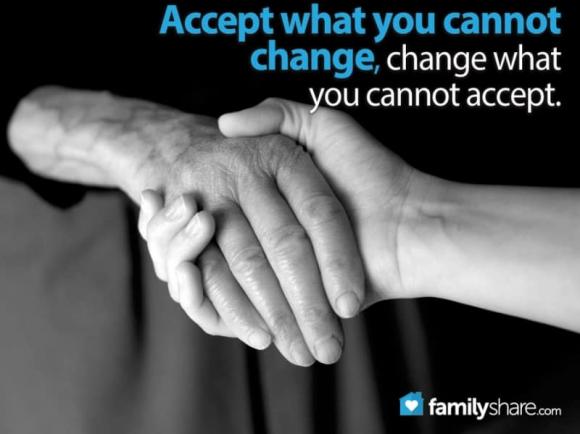
Accepting others is a concept that can feel muddled and become easily corrupted. Particularly if your spiritual or religious tenants profess evangelism and conversion. There may seem to be a fine line between accepting others and leading them down your path, or the path you know to be "right."� But in reality, accepting others means being agenda-less. Not asking them or secretly wanting them to change. Asking and wanting others to change, hopefully for the better, is not bad. However, be aware of the difference between this and really accepting that person. Offering acceptance of what they believe, how they act, the way they live their lives, what they teach their children, how they treat you - any part of who they are.
So what is acceptance? What isn't acceptance? How do we show acceptance to others?
1. Acceptance
To accept someone is to show respect for and validation of who they are, what they do, and for the life and path they chose. It by no means agreeing with or approving of anything about another. You don't have to like it. Yet, you can always accept it as being a part of everything that is.
2. Non-acceptance
To not accept someone is to show disrespect and disregard for who another is, what they do, or the life and path they chose. You may actually agree with and approve of everything about another, but that does not mean you accept them. There can be something you think they could be doing "better"� or "more"� or "different."� Most likely, more like you, or someone or something you idolize.
Non-acceptance is actually the norm in most societies. We constantly try to mold other people to be more as we think they should be. Even people in the same value or belief system suffer from infighting as they try to create homogeny amongst the ranks.
3. How to accept others
Accept yourself
-
The first and hardest step in accepting others is to accept yourself. For everything you are. For all your perfection, and flaws. For all your beauty and blemishes. For every right move and wrong turn. For all your sin and salvation.
-
This can be difficult for some. You may not feel it's appropriate to accept the part of yourself you believe your higher power asks you to reject. This is an internal conflict you will have to resolve on your own, or with your spiritual community. Suffice it to say, everything begins with you. If you cannot accept yourself, you will not be able to accept others completely. You will always have an agenda. For yourself, and everyone else.
Know better
When you feel you are more intelligent, more experienced, wiser, and generally just know better than others, you have the tendency to try to take people under your wing and educate them to everything you know. This can be a blessing. However, this doesn't come without a cost. To "know better"� is to assume the path you have chosen is superior to another's, and she should, at least in some way, be following you. Or, following you on your path. This not only is not accepting another, it is ignoring the very possible reality that you may be blind to your own ignorance. How do you know this other person does not have something valuable to teach you? Accepting others means allowing yourself to be taught, as well as heard. By anyone. Especially people you believe you "know better"� and know more.
As it is
Accepting others as they are is a function of accepting everything as it is. It is a deep trust in your higher power to create your life, the lives of others, and everything that is in its own image of perfection. No matter how dire things seem, having faith that you and others are having the best of all possible lives, and this is best of all possible worlds, will immeasurably help you change your outlook on accepting anything and anyone you come across.
4. Acceptance at home
Acceptance has a tremendous effect on the dynamics of a family. You may not even notice how comforting and safe it feels to be brought up or invited into an accepting environment. However, it is easily recognizable when those you hope will understand and help you in life seem to see you as the biggest problem. Non-acceptance can be very difficult, even heartbreaking in a family. You may see yourself as a role model and the guiding force in your children's, or even partner's lives. Yet, when this guidance turns to pushing, and expectations turn to judgment, resentment or rejection, parenting can quickly turn into managing. Managing is for employees. Not family.
As the head of the household, it is your job to teach your children values and make your aspirations for them clear. Make sure that if there is non-acceptance in your family, it's not coming from you. Your children, siblings, parents or friends may not even know they're practicing non-acceptance. If they are, address it with them again from a standpoint of guidance. Not dictation. Let them know you choose to accept them for the person they are. Even though, you may now disagree with their behaviors and attitudes toward others. Or themselves.
- Make your household an Acceptance-Only or Judgment-Free Zone.
Accepting someone the way they are does not mean you need to keep them in your life or close to you. Especially if they become toxic, abusive, or neglectful of you and your needs. Yet, you can accept them for who they are. Hopefully, as you accept yourself for who you are. If you want to change something for the better, go right ahead. However, know completely accepting something the way it is and pushing an agenda to change it is incompatible.

